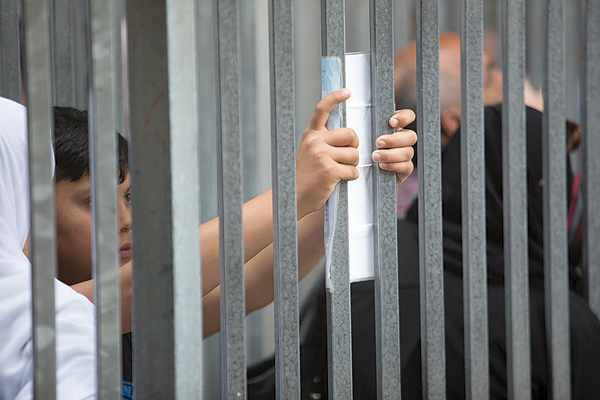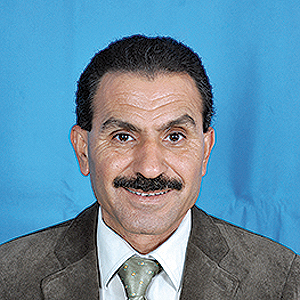
Since its establishment in 1994, the Palestinian Authority has had to work with a myriad of legal complexities characteristic of a tumultuous history. Having been selectively subjected to Israeli law and military orders since the onset of the occupation in 1967, Palestinians were obliged until 1994 to seek legal redress through Israel’s courts. The late President Yasser Arafat sought to undo this fundamental affront to justice at that time by decreeing all decisions issued by Israel after 1967 as null and void – in effect removing the legal terms of reference of the Israeli military occupation.
Still more challenges awaited the newly established Palestinian Authority, however, as the legal and judicial systems remained bifurcated, with Jordanian laws applicable in the West Bank and a mix of Ottoman, Jordanian, and Egyptian laws in vigor in the Gaza Strip. The Palestinian Authority wasted no time in working to unify these systems. This began with parliamentary decisions to unify the judiciary, followed by other fundamental acts of legislation around the years 2001–2002, including the Law on the Formation of Regular Courts, the Judiciary Authority Law, the Civil and Commercial Procedures Code, the Criminal Procedures Code, and the Palestinian Bar Association Law. These laws were catalysts to the merging of the justice sector, which included courts, public prosecution, and the Ministry of Justice.
In 2007, Hamas took control over the Gaza Strip by force of arms, precipitating dysfunction of the Palestinian Legislative Council and dissolution of the government headed by Ismail Haniyyeh. Disputes over civil, military, and justice functions emerged, causing further discord in the legislative, executive, and judicial authorities. The regular and Shari’a courts, public prosecution, and the Ministry of Justice were all profoundly affected.
So what exactly is the impact on justice of the Fatah-Hamas political split in Palestine? How has this split affected the justice sector and state capacity to enforce justice? Can the performance of justice-sector institutions be developed in spite of the split? This article aims to provide answers to these questions and propose recommendations for truly unifying and activating the justice sector based on law and international obligations incumbent on ruling parties.
A number of changes have taken place in the justice sector the State of Palestine as a result of the split. The legal framework that regulates the justice sector has been abandoned and new unconstitutional and illegal structures developed. This is apparent in the manner in which the judiciary and legal systems are currently being administered in the areas formerly under the consolidated control of the Palestinian Authority.
Resulting from the dysfunction of the elected Palestinian Legislative Council, the split has given rise to two ways of circumventing a truly democratic system to allow for the passing of legislation in practice. The first is through decrees by law issued by the president pursuant to Article 43 of the Basic Law that states, “The president of the national authority shall have the right, in cases of necessity that cannot be delayed and when the Legislative Council is not in session, to issue decrees that have the power of the law.”i Since the 2007 split, the president has issued over 160 decrees by law.
The following observations can be made about the decrees by law: (1) they apply only to the West Bank and exclude the Gaza Strip; (2) most would not qualify as being taken “in cases of necessity”; (3) they do not take into account contributions of civil societyii; (4) they do not address core issues such as unemployment and poverty that infect Palestinian society.
The second way in which laws have been enacted is by “powers of attorney.” In the Gaza Strip, the ruling Change and Reform Blociii enacts laws under this procedure, whereby members of parliament complete a quorum and vote by power of attorney on behalf of incarcerated Palestinian Legislative Council members and those residing in the West Bank. In this way, the Bloc has enacted approximately 57 laws. A number of observations can be made regarding laws enacted in accordance with this procedure: (1) they are applied exclusively in the Gaza Strip; (2) they are not provided for in the Basic Law or PLC statute, and are hence unconstitutional; (3) the president has not endorsed them in accordance with the constitution; (4) they are predominantly of an ideological nature.

Naturally, the legal split between the West Bank and the Gaza Strip exerts an enormous impact on the ability of the justice system to deliver consistent rulings in accordance with principles of equality and fair trial. Moreover, the judicial split has resulted in the formation of a judicial system in contradiction to provisions of foundational pieces of national legislation – the Basic Law, the Judicial Authority Law, and the Law on the Formation of Regular Courts. In fact, the legal framework that regulates the judicial authority is far detached from the actual condition of the judicial authority, constituting a serious legal breach reflected in separate entities between the two territories, including two high judicial councils, two attorneys general, two separate high courts, two separate Shari’a judicial councils (supreme judge departments), and two ministries of justice – all institutions which, under constitutional provisions, are necessarily to be unified and providing justice service in both the West Bank and Gaza Strip under the same parameters.
Beyond the division of justice-sector institutions, lack of independence of the judiciary has hampered law enforcement. While civil society has taken on an important role in providing information, legal assistance, and legal representation to marginalized groups, the obstacles to consistent, governmental enforcement of law include (1) a severe shortage of judges relative to the number of case files; (2) limited experience and capacity of judges; (3) interference of the executive authority in the work of judges and public prosecutors; (4) an excessively slow litigation process; (5) lengthy procedures for enforcement of sentences; (6) prevalence of corruption and nepotism in the system; (7) inadequate budgets designated to the judicial authority (particularly when comparing to the budgets of the civil police and security forces); (8) lack of willingness to enforce court rulings issued by the Gaza Strip in the West Bank and vice versa; (9) inadequate court facilities, impacting the stature of the judiciary and resulting in a system inability to adjudicate cases.
With the previous paragraphs as background, I here suggest some approaches to remedy the state of the Palestinian justice sector in light of the political split:
- Political reconciliation must be achieved in the interest of the Palestinian state and people, and a restructuring of the justice sector undertaken in accordance with the law.
- Legislation regulating the work of justice-sector institutions must be unified and updated, particularly securing judicial independence and ensuring prompt enforcement of justice.
- Judges should be provided fair salaries lest they become prone to corruption as a result of the dire economic situation, particularly in the Gaza Strip.
- A unified judicial training institute needs to be established to ensure professional development of the judiciary.
- Court and prosecution facilities must be renovated to cater for the physically disabled.
- Modern technology should be employed in the administration of the justice sector.
- Judicial inspection over judges and prosecutors must be unified and adopted to ensure accountability and independence.
- Legal aid and outreach must be expanded in scope to ensure proper targeting of the most vulnerable and safeguard universal access to justice.
- Employees of the justice sector should benefit from professional development, particularly focusing on improving their capacities in gender issues, human rights, communication, international law, and law enforcement.
- Incentives should be provided for judges, prosecutors, lawyers, and other employees through recognition and provision of annual awards.
- Training needs to be provided in the area of professional ethics for lawyers, particularly in the areas of integrity, credibility, and objectivity in defending the rule of law and disciplinary measures applied to those who violate such ethics.
- The oversight role of civil society needs to be revisited such that effective pressure be exerted on decision-makers regarding reform of the justice sector in accordance with law.
- Justice-sector institutions in Gaza need to be included in national budgets and donor-assisted interventions, and judges must be involved in training programs and awareness campaigns.
Adoption of these recommendations would put the State of Palestine back on track in terms of progressively improving capacity to deliver justice to its people and underpin state capacity to fulfill its obligations as a respected member of the international community of nations.
» Karem Nashwan is a legal adviser and human rights activist. He works as external legal consultant for some local and international organizations in Palestine. Mr. Nashwan is an advocate for women’s rights and gender equality. In addition, he has produced some legal studies on gender, women’s rights, labor rights, and child labor. He has a master’s degree in law.
* Translated from Arabic by Sammy Kirreh.
i Article 43 of the 2003 Amended Basic law. Full version of the Basic Law available at: http://www.palestinianbasiclaw.org/basic-law/2003-amended-basic-law.
ii In particular, they have lacked consultation with respect to the merging of the penal code and personal-status law, the enactment of trade union laws, and laws regarding domestic violence and youth rights.
iii As a result of the January 2006 Palestinian Legislative Election, Hamas – represented by the Change and Reform Bloc – achieved a great victory and won 74 seats of the total 132 seats of the PLC, while Fatah won just 45, PFLP 3, and the remaining 10 seats for other independent individuals. At the time, Hamas temporarily formed a majority government within the PLC, but the refusal of other parties to participate in governing, aided by the international boycott of the PA under Hamas, did not allow it to function. As a result of these factors, in 2007, Hamas took control of Gaza by force, and it has exercised control and functioned as the local authority in Gaza ever since.


